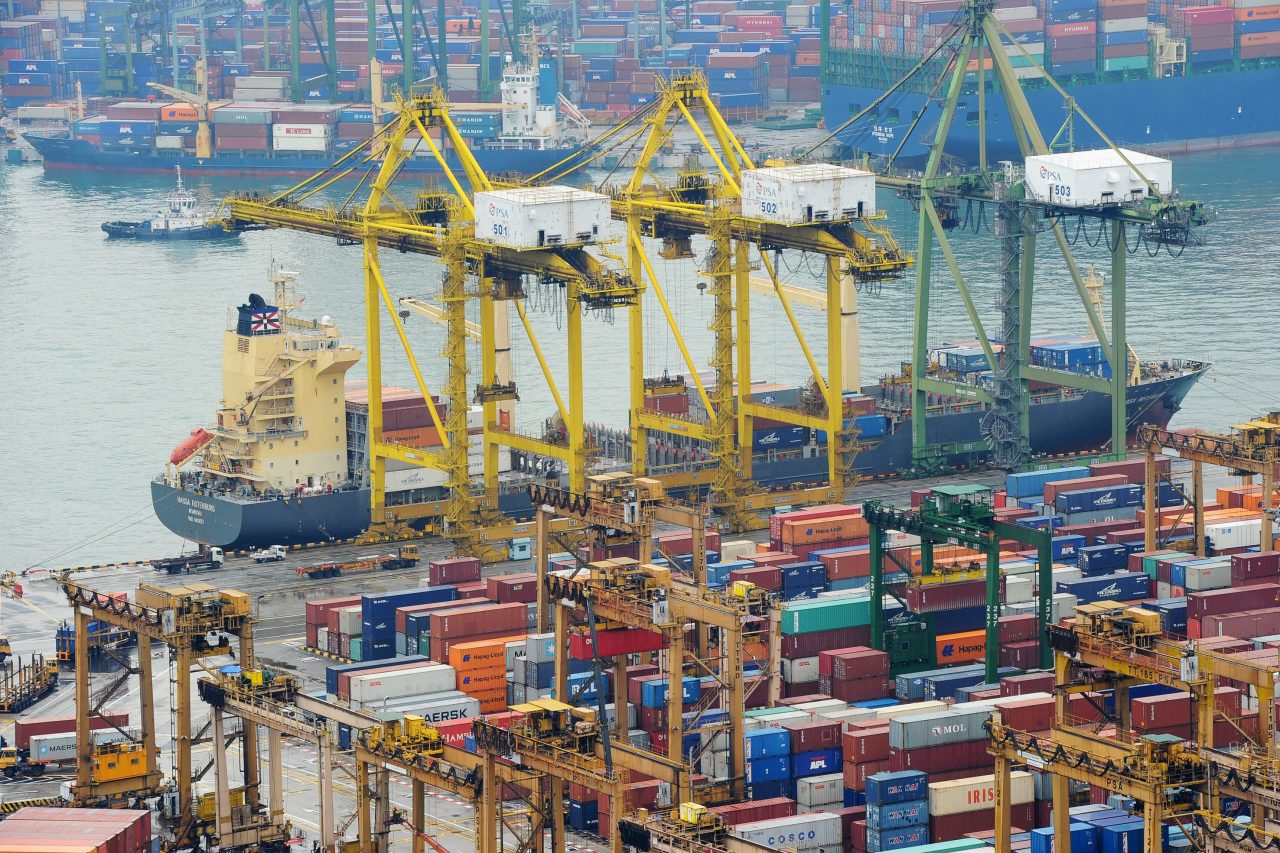
Bureaucracy, high costs put Nigeria behind Ghana, Togo, others
Singapore has charged Nigeria to increase the ranking of its ports in West Africa to first as well as its cargo handling capacity to 276,848 tonnes and ports throughput to 100 million metric tonnes from a baseline of 80 million metric tonnes by 2027.
Singapore also recommended that Nigeria reduce the turnaround time of vessels at ports to two days from a baseline of four and five days as well as increase the percentage of containers moved by rail and barges to 50 per cent of the total from a baseline of five per cent by 2027.
These were the recommendations of the research project by Nanyang Technology University (NTU) – Singapore Business Federation (SBF) Centre for African Studies, titled: “Back to Growth: Priority Agenda for the Economic Revival of Nigeria.”
Disclosing the content of the report in Lagos, the Director, NTU-SBF Centre for African Studies, Amit Jain, urged Nigeria to expand her ports capacity and improve efficiency, as the ports are burdened with abandoned cargoes due to administrative bureaucracy and high operational costs. He noted that the cost of exporting 100 tonnes of cargo in Nigeria is $35,000, while in Ghana it is only $4, 000.
According to the report, the number of abandoned cargo containers at Nigeria’s three major seaports – Apapa, Onne, and Tin-Can Island rose to over 6,000 in 2022, risking congestion and constraining economic activity.
Jain said today, the leading ports in West Africa are Cote d’Ivoire, Ghana, Togo, and the Benin Republic with these countries having modernised their ports management systems, while Nigeria appears to be lagging behind its competitors.
He said Nigeria also has inadequate transport infrastructure for the size of its economy and ranks 29th in the Africa Infrastructure Development Index (AIDI).
According to him, transport infrastructure projects in Nigeria are often seen frequently abandoned mid-way due to lack of financing, administrative ineptitude, or outright corruption.
He said the poor road and rail network causes frequent breakdowns of vehicles and hinders efficient transportation of goods from production factories to points of consumption, which increases the cost of doing business.
Jain cited a study that found that about 40 per cent of export costs are linked to inefficiencies and informal payments along a single road corridor – the Lagos-Kano-Jibiya Road.
On trade liberalisation, the report stated that Nigeria has adopted a protectionist trade regime, noting that the last few years have witnessed a significant resurgence of protection with an escalisation of trade barriers, which include higher tariffs, levies and import bans.
The report stated that this has only strengthened the market power of monopolistic incumbents and made the private sector less competitive. According to the report, cumbersome customs procedures combined with creaky port infrastructure have contributed to the slide of nearly all indicators of trade efficiency.
The report stated that trade, as a share of Gross Domestic Product (GDP) in Nigeria, declined from 43 per cent in 2010 to 34 per cent in 2019, making it one of the lowest in Sub-Saharan Africa.
According to the report, of the 179 countries studied, Nigeria ranks lowest on trading across borders Indicators, noting that even within the country, the movement of goods between states and across borders has been hampered over the years by interstate transportation costs and multiple checkpoints.






